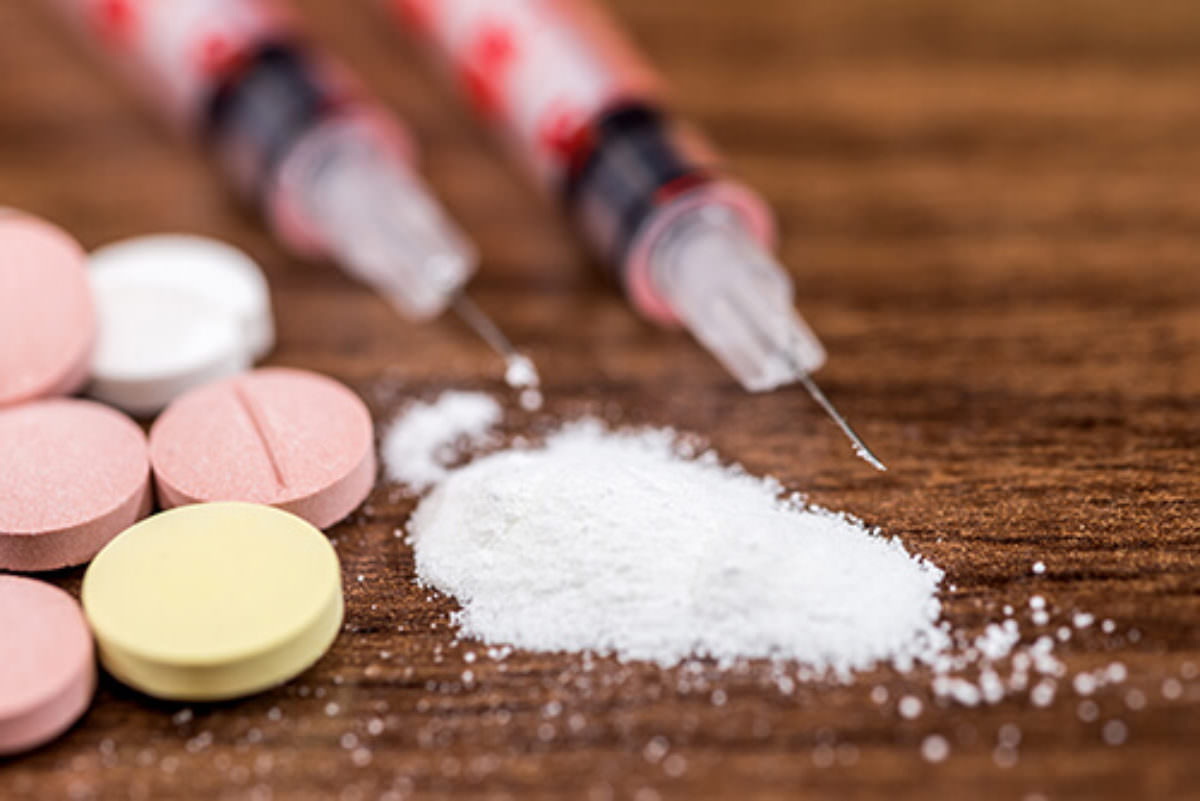Heroin has been a major health and social issue for decades. It has caused untold death and destruction, and continues to be a major problem for many countries. It is often referred to as an opiate or opioid, but what is the difference between the two? In this article, we will explore the distinction between heroin as an opiate and an opioid, and discuss the implications this has for users and policymakers alike.

What is Heroin?
Heroin is an illegal, highly addictive drug. It is classified as an opioid, which is a type of drug that is used to treat pain and which has the potential to produce a strong sense of euphoria. It is derived from morphine, which is a naturally occurring substance found in the opium poppy plant. Heroin can be snorted, smoked, or injected and is highly addictive due to its ability to affect the brain’s reward system.
Short-Term Effects of Heroin
The short-term effects of heroin can be felt almost immediately after taking the drug, and they can vary depending on the method of administration. Common effects include a feeling of euphoria, relief from pain, and a general slowing down of the body’s systems. Additionally, people may experience drowsiness, impaired coordination, and slowed breathing. It is important to note that heroin can be deadly if taken in large doses or if taken in combination with other substances.
Long-Term Effects of Heroin
The long-term effects of heroin use can be devastating and potentially life-threatening. People who frequently use heroin may develop physical and psychological dependence, which can lead to withdrawal symptoms if use is abruptly stopped. Long-term use can also lead to organ damage, brain damage, and a weakened immune system. Additionally, people who use heroin may be at an increased risk for infectious diseases, such as HIV and hepatitis C, due to sharing needles.
Is Heroin an Opiate or Opioid?
Heroin is classified as an opioid, which is a type of drug that binds to opioid receptors in the brain and affects the body’s reward system. It is derived from morphine, which is a naturally occurring substance found in the opium poppy plant. Heroin is not an opiate, which is a term that is used to describe substances derived directly from the opium poppy plant, such as morphine and codeine.
Heroin Addiction
Heroin is a highly addictive substance, and addiction can occur after just a single use. Physical dependence can develop quickly, and people may experience withdrawal symptoms if they try to quit. People who are addicted to heroin often struggle to control their use, and they may continue to use the drug despite the negative consequences.
Treatment for Heroin Addiction
Treatment for heroin addiction typically involves a combination of medication and behavioral therapies. Medication-assisted treatment (MAT) is often used to help people manage withdrawal symptoms and cravings. Behavioral therapies can also be helpful in addressing the underlying causes of addiction and helping people learn how to manage their cravings and make healthier choices.
Few Frequently Asked Questions
What is Heroin?
Heroin is an illegal, highly addictive opioid drug. It is synthesized from morphine, a naturally occurring substance extracted from the seedpod of certain varieties of poppy plants. It is typically sold as a white or brownish powder or as a black sticky substance, known as “black tar heroin.” Heroin can be snorted, injected, or smoked and produces an intense feeling of euphoria.
Is Heroin an Opiate or Opioid?
Heroin is an opioid, a class of drugs derived from opium. Heroin is a semi-synthetic opiate, meaning that it is derived from the poppy plant and then modified chemically. Opiates refer to natural drugs extracted directly from the poppy plant, while opioids refer to synthetic drugs that are chemically altered versions of opiates.
What Are the Effects of Heroin?
Heroin use can have many short-term and long-term effects, including physical and psychological dependence. Short-term effects of heroin use include a feeling of euphoria, dry mouth, heavy feeling in the limbs, and cloudy mental functioning. Long-term effects may include insomnia, depression, and an increased risk of contracting infectious diseases, such as HIV and hepatitis.
What Are the Risks of Heroin Use?
Long-term use of heroin can lead to physical dependence, which can lead to withdrawal symptoms when the drug is stopped. In addition, using heroin can lead to overdose, which can be fatal. Other risks of using heroin include increased risk of contracting blood-borne diseases, such as HIV and hepatitis, and increased risk of criminal activity.
How Is Heroin Addiction Treated?
Heroin addiction is a complex disorder that can be treated with a combination of medication, psychotherapy, and support groups. Medications, such as methadone and buprenorphine, can help reduce withdrawal symptoms and cravings. Psychotherapy can help individuals identify triggers and develop coping skills to help manage their addiction. Support groups can provide a sense of community and help individuals stay motivated in recovery.
What Are the Signs of Heroin Abuse?
Signs of heroin abuse can include track marks on the arms or legs, sudden weight loss, changes in sleep patterns, changes in behavior, and financial problems. Other signs may include changes in physical appearance, such as pale skin and dark circles under the eyes, and changes in social relationships, such as isolating oneself from friends and family.
Understanding the Opioid Epidemic | Understanding the Relationship Between Opioids and Heroin
In conclusion, the answer to the question of whether heroin is an opiate or opioid is yes. Heroin is a highly addictive opioid drug derived from the opium poppy plant. It works by binding to opioid receptors in the brain, resulting in a range of effects including euphoria, relaxation, and pain relief. Although heroin is known as a dangerous and illegal drug, it has been used in medicine for centuries, and is still used today in some countries to treat chronic and severe pain.
